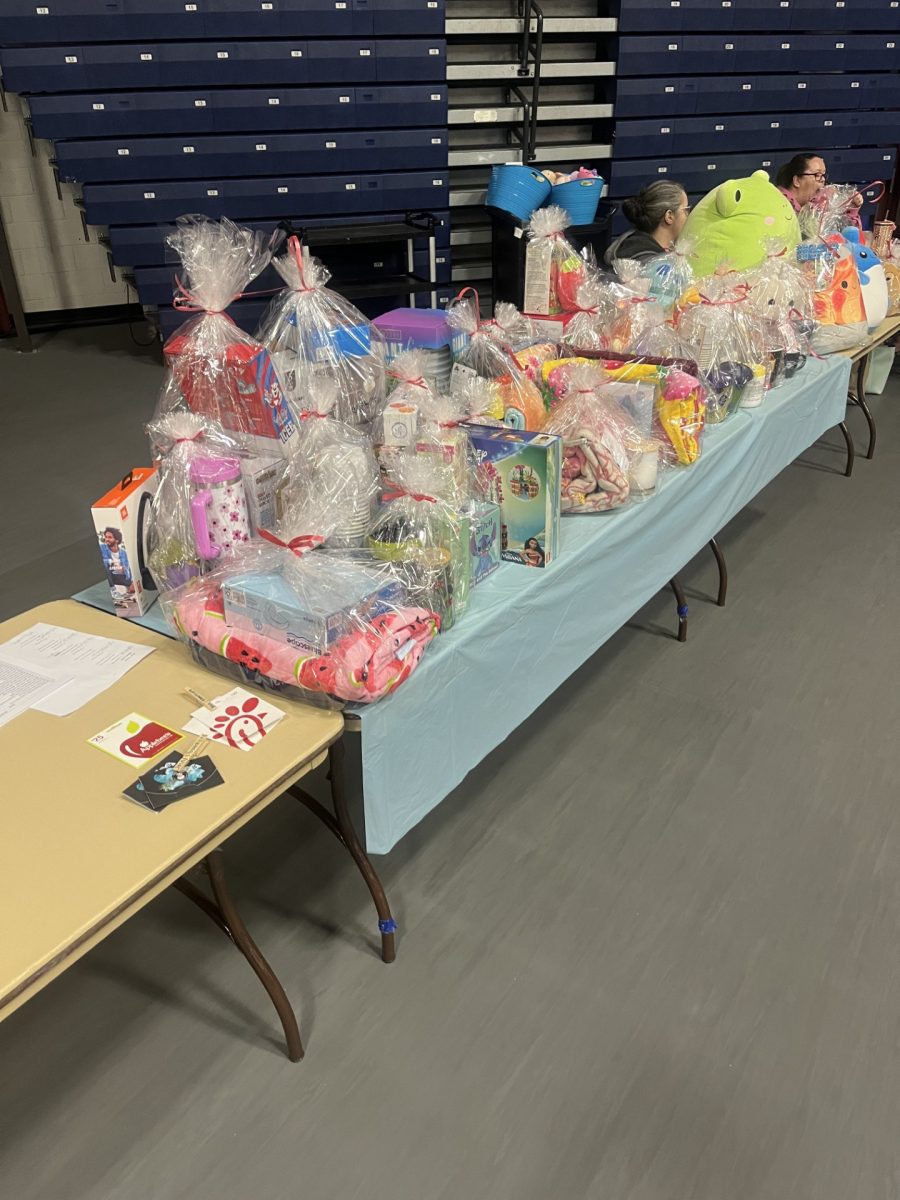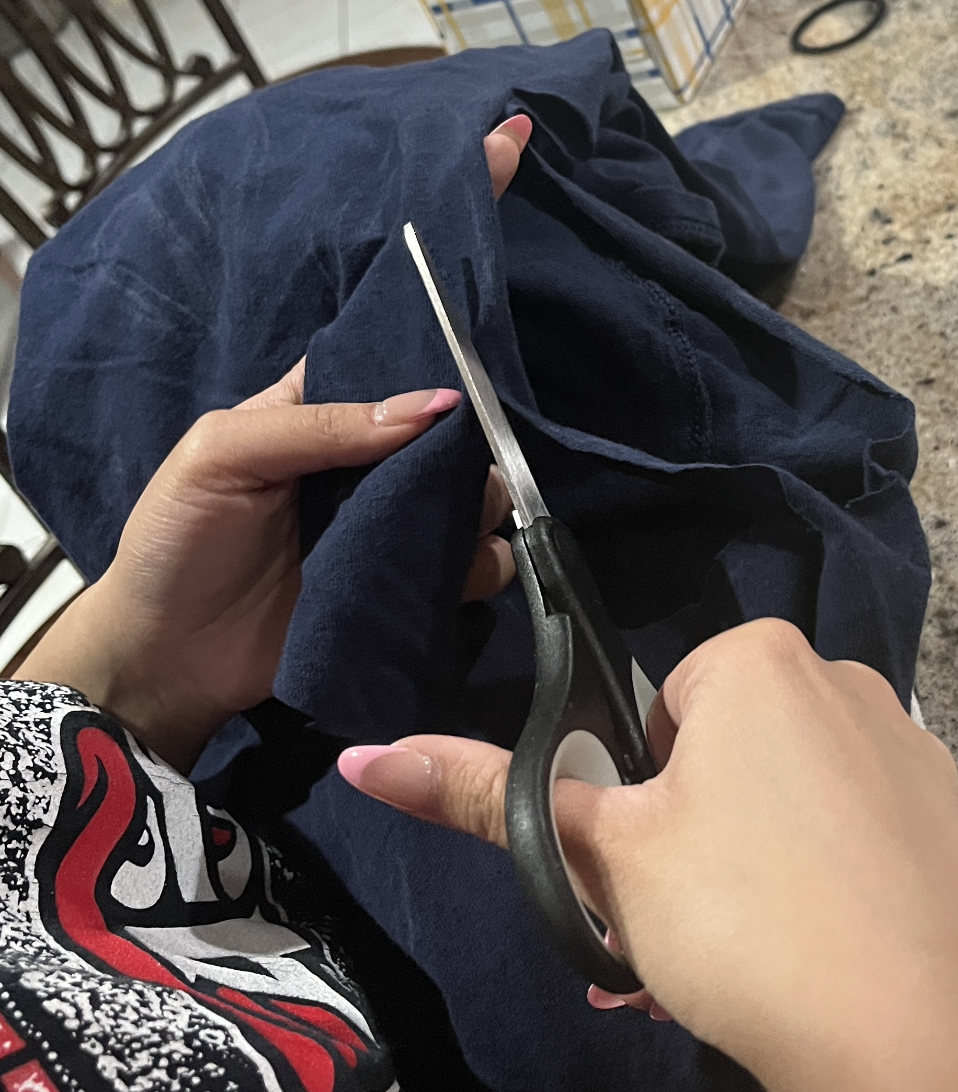Our Declassified Community College Survival Guide

April 1, 2020
Being a community college student is not always easy. Students are tasked with balancing a full course load, studying, working a part-time or full-time job, managing a social life, participating in extracurriculars and in some cases, parenting and caretaking.
It is easy to feel alone at a commuter school, where there is no prohibition from attending classes and rushing back home. The transition from high school to community college could be shocking or surprising, and this season of life could be many students’ first taste of independence and accountability. However, no one
should rough it alone.
Brookdale is full of students and faculty who are navigating and mastering this strange, possibly unnatural balancing act. Everyone from club leaders to academic advisers, to trusted psychology professors, to student workers and other leaders offers a piece of wisdom for Brookdale students.
Getting involved in clubs might be scary at first; however, they are a great opportunity to spend your time at Brookdale doing activities related to things you enjoy.
“Be proactive in meetings, have an opinion, show initiative. People only have four to five semesters here. If you don’t show that you’re willing to make moves, you’ll run out of time,” said 19-year-old environmental science major and president of the Environmental Club Taylor Davis of Shark River Hills.
As a club president, a person needs to find the time to balance regular school work, a job, internships, and club-related work. “I work a few days outside of school and do one to two six-hour shifts of volunteer work with a first aid squad,” Davis said. “I try my best to stay updated on the club by constantly checking emails. I dedicate time to the club just as I dedicate time to studying.”
“A lot of people think clubs are hard to run, I don’t think so,” said Gavin O’Hanlon, a 20-year-old computer science major from Shrewsbury. O’Hanlon juggles being a full-time student, part-time worker, president of the Computer Science Club and vice president of the Gaming Club this semester.
According to O’Hanlon, clubs are “realistically just a lot of paperwork” and communication. As far as working, O’Hanlon recommends working “stuff around your job.”
“I’d recommend staying at Brookdale. I have a computer science lab I could go to. Go to the labs or the library. It’s really good for focusing, sitting down and doing work,” said O’Hanlon.
While O’Hanlon admits to a tendency to procrastinate, he detested feeling overwhelmed and “somehow it works.” His outlet? Playing “a lot of video games.”
“Something I always do is plan out my week and when I am going to try to get something done… When I do this, I feel much less overwhelmed and can be more productive,” said Megan Kaba, a 20-year-old fashion merchandising major from Millstone and president of the Fashion Club. Keeping yourself updated and organized with a calendar can make a huge difference and allows you to see what exams, projects, and events are coming up.
“President is my title, but there are five other leaders in the leadership team, and we all work together as leaders to get everything together,” said Rebecca Praschak, a 20-year-old liberal arts major from Belmar and president of CRU. She is a full-time student and recently started working for an ambulance company. Do not put everything on yourself and learn to work as a team.
“Delegate club responsibilities to your fellow officers. We are all students before we are officers, and you can’t always be on top of everything all the time… Our responsibilities are more balanced, which makes everything much more manageable,” said Kaba.
“Find something that you personally like and focus on that… listen to music, drawing, or being on your phone,” said Hudson Eder, a 22-year-old theater major from Freehold and president of the Filmmakers Club. “It is important to give yourself a break from school and work. Learn how to manage your time; give yourself a day or a couple hours a day when you only have to worry about yourself.”
“I would say time management is really important to me,” said Faraz Ali, a 20-year-old business administration major from Freehold. Ali is the co-editor-in-chief of The Current.
Ali manages being a student, co-editor-in-chief and part-time worker by “making sure I give myself enough time to do each task.” Ali joined The Current in the fall of 2018. Before becoming co-editor-in-chief, Ali assumed the role of the advertising manager.
As far as student success goes, Director of Advising and One-Stop Suzanne Rauso formulated advice tailored specifically to Brookdale students.
Rauso knows that many Brookdale students are busy and work. According to Rauso, time management is frequently discussed “in advising.”
“Students often say, ‘I worked too much and that’s why my grades went down’,” said Rauso. “A lot of students feel that because they’re only in the classroom 12 to 15 hours a week, that means they can work 35 [hours a week].”
Rauso recommends students account for study time when creating schedules. Students should “double” the number of credits they’re taking and translate that number into how many hours they should allocate each week to studying and schoolwork.
“We recommend no more than two [classes] in one day,” said Rauso.
“Three is too much, even though it seems like a good idea.” Rauso’s ideal schedule looks like two classes per day with ample time in between to “digest” what’s been learned and Fridays off.
When students study, students should “take things in smaller doses,” according to Rauso, who recommends “the old notecard way” and “biting things off into smaller chunks, not waiting until the end, making sure you understand.”
Attending classes, studying, working a job, participating in extracurriculars and maintaining a social life can make creating a schedule on your own tempting. However, Rauso recommends seeing an academic adviser “at least once a semester, if not more.” Seeing an academic adviser once a semester, particularly related to scheduling, is especially helpful for staying on-track in your major and remaining on-target with your anticipated graduation date.
Professor Eugene DeRobertis currently teaches Introduction to Psychology, Lifespan Developmental Psychology, and Cross-Cultural Psychology. In DeRobertis’ opinion, what inhibits students from meeting deadlines comes from “a combination of having too hectic a schedule, not caring enough about school to make it a priority and/or poor time management.”
“Read the book chapter first along with any other supplementary readings… come to class, take good notes and/or record the lecture. When it is time to study for an exam, listen to the recording over and over and type up any notes you have to give them organization,” said DeRobertis. He said this is the best way to study before an exam.
“If you cannot explain it, you do not understand it. Memory is not learning or understanding. I want students to be proactively involved in their own education,” said DeRobertis.
The biggest problem in DeRobertis’s opinion is “students wish to memorize the material just good enough to “guess” on multiple-choice exams. This strategy is that of the least possible amount of work and it does not work for learning, the four-year level, life in general or my classes.”
Brookdale offers work-study programs that allow students to work on campus while taking classes. “Find a job that is related to your major or what you want to do in the future,” said Maryann Rojas, a 22-year-old who graduated from Brookdale with a humanities degree but went back to take graphic design classes. She works for the gallery at the CVA building and is taking three classes this spring semester.
“Get involved in clubs and in college… you can learn from the faculty and they can also help you,” said Rojas, who is also co-president of the Collage Club along with Michael Tucker.
According to Thomas Gilinsky, a 19-year-old computer science major from Howell, working at the Brookdale Bookstore “isn’t so difficult.”
“Here at the Bookstore, they make it very easy because they’re very accommodating,” said Gilinksy. “I can take off if I need to if I have an appointment.”
Gilinsky notes that the first few weeks of the semester are the busiest. He is off on weekends. Not only that but “there’s no commute problem” because his classes and workplace are in the same vicinity.
If you’re ever in the Student Life Center, there’s a chance you’ve seen Student Life Ambassador Becky Nastro energetically fulfilling her tasks as the president of Brookdale’s Student Life Board. As the person who is in charge of many student activities on campus, Nastro takes on several responsibilities while trying to create a fun environment for students.
“Honestly, trying to communicate to the members of your group is one of the most difficult parts of being a leader. For example, I have a board and sometimes the board will lack in their duties to come to events and do their office hours. As president, it’s frustrating and difficult to try to get them to do it,” said the 22-year-old business administration major of Matawan. “You can’t force anyone to do anything. You just want the best for the group you’re leading.”
“You’re trying to figure out as a president how to make people excited and how to get them to go to events,” said Nastro.
Like any other student, there are other tasks Natro has to complete outside of her demanding role as president. “Outside of being president. I had a house fire three years ago and am still building my house from the ground up. I get home, I pick up my dad from work, work on the house, do schoolwork. It’s a cycle,” said Nastro.
With the right mindset, Nastro believes anyone is able to pursue their goals and become a leader. “I’m a very determined person. I was taught a lot of leadership roles at camp, especially delegation and keeping hope. I’ve gone through a lot of stuff, but I never gave up hope or stopped working for what I want. Eventually, the determination overtakes the negatives.”

























